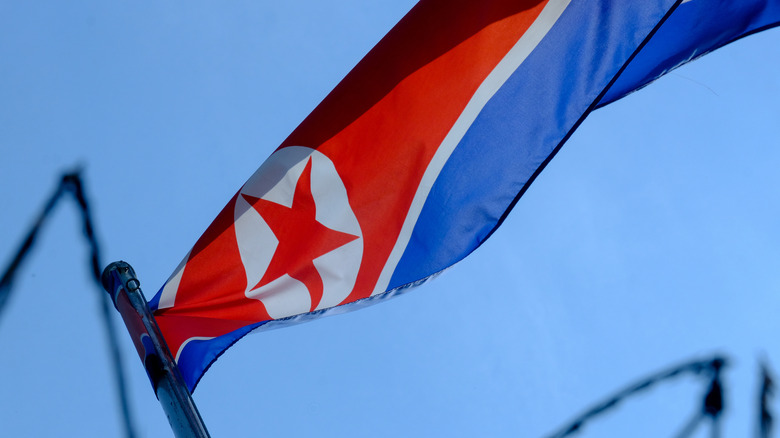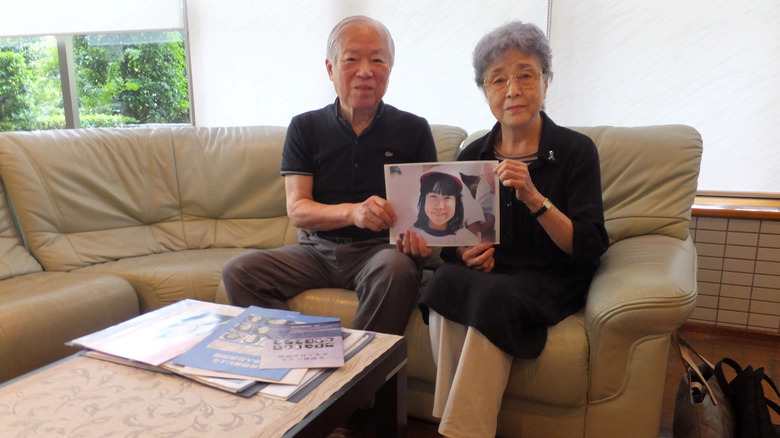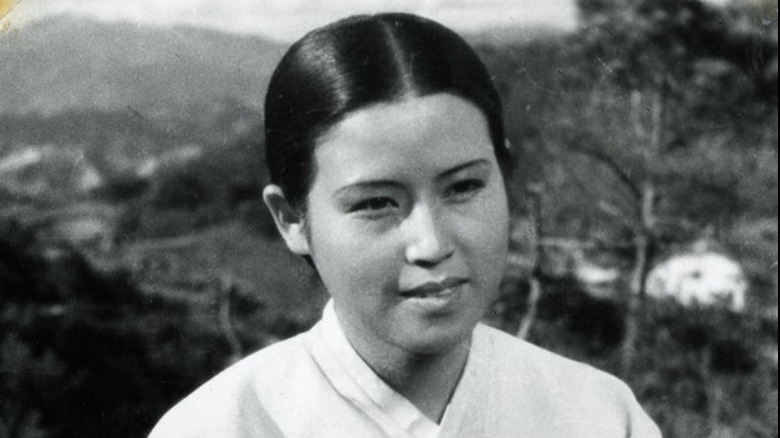The Most Unusual Reasons North Korea Has Kidnapped People
North Korea has long been a highly secretive and insular state, a country whose citizens are cocooned from the influences of the outside world. According to Huffington Post, the North Korean government's policy of self-isolation — which includes a ban on foreign media and the strongest restriction of internet use for the vast majority of the population — is in part derived from traditional attitudes toward foreign powers, and notes that in the 19th century the Korean peninsula was known as the "Hermit Kingdom" after refusing to open its borders to Western traders, while an attempted invasion of Korea by the French in 1866 further instilled the importance of isolationism in the minds of Korean leaders, per NowThis World.
The decisive moment in establishing the isolated state of North Korea as we know it today, however, occurred at the end of World War II, when the region was separated into the Soviet-controlled north, and the American-controlled south. According to Huffington Post, under the direction of Kim Il-sung (who was handed the leadership of North Korea by the Soviet Union's Josef Stalin), the country undertook a style of governance based on the "Juche" ideology, which has been described as: "The realization of independence in politics, self-sufficiency in the economy and self-reliance in national defense is a principle the Government maintains consistently."
Why North Korea kidnapped a Japanese teenager
This policy of self-reliance has not been easily realized, and in what The New Yorker has described as an "abduction project," North Korea — under the rule of Il-sung, and his successors Kim Jong-il, and Kim Jong-un — has sought to quell what has become an ongoing catastrophic brain-drain in the country with countless state-sanctioned kidnappings of foreign nationals. According to DW, Japan has confirmed that 17 of its citizens were abducted by North Korean agents between 1977 and 1983, and believes the state may have had a hand in the disappearance of some 880 other missing persons.
Among the first of those to be abducted was Megumi Yokota, who disappeared on her way home from school on November 15, 1977, according to the BBC. The Japanese schoolgirl was just 13 years old when she went missing, and little could her family believe it when, decades later, they received information that Yokota had been taken to North Korea to work as a Japanese teacher at what the same source describes as an "elite school for espionage." In 2011, a North Korean defector was reported by the Yonhap News Agency as saying that Yokota was still alive, per Japan Today.
In October of 2002, five of North Korea's kidnapping victims were returned to Japan, according to a report from the Committee for Human Rights in North Korea.
The strangest of North Korea's abductions from the South
Following the brutal 1950-1953 Korean War in which more than 5 million Koreans — around 10% of the population — lost their lives, North and South Korea found themselves in an uneasy stalemate and with the countries remaining in a state of agitated conflict ever since, according to History. Writing for Frontline, Charles K. Armstrong has argued that: "North Korea is a society with a permanent siege mentality. It has lived under a constant threat of war since the 1950s."
According to AP News, North Korea's campaign against the South since then has in part taken the form of systematic abductions. The source notes that the South Korean government claims some 3,835 South Koreans have been abducted since the end of the war and that those kidnapped are forced into spying and propaganda programs against their homeland — with some of these incidents rising to huge international prominence thanks to the seemingly bizarre thinking that underpins them.
According to History, in 1978 Kim Jong-il, who at the time was chief of North Korea's Propaganda and Agitation Department, orchestrated the kidnapping of South Koreans Shin Jeong-gyun and Choi Eun-hee (pictured), a director and actress respectively, and a former celebrity couple. Jong-il — an obsessive fan of cinema — then forced the pair to make a series of 17 movies that he hoped would form the foundation of a new North Korean film industry. The most notorious of the films produced is "Pulgasari," an attempt to establish North Korea's own version of Godzilla.
Shin Jeong-gyun and Choi Eun-hee escaped North Korea in 1986, but South Korean citizens continue to be abducted, with many hundreds still unaccounted for.


